News
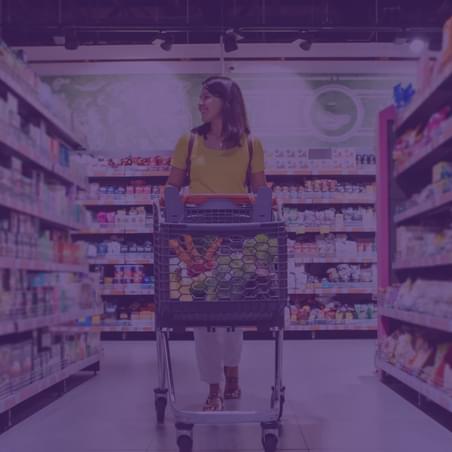
12 Mar, 2024
Why consumer-packaged entertainment is the ultimate weapon to win over Gen Z
Read More
Andy Wardlaw
10 May, 2021 | 4 minute read
From late summer, this Upcycled Food Association (UFA) symbol will be available to qualifying American manufacturers. It’s a new weapon for those trying to persuade the buying public to make more sustainable choices. And it’s likely to start a new global trend.
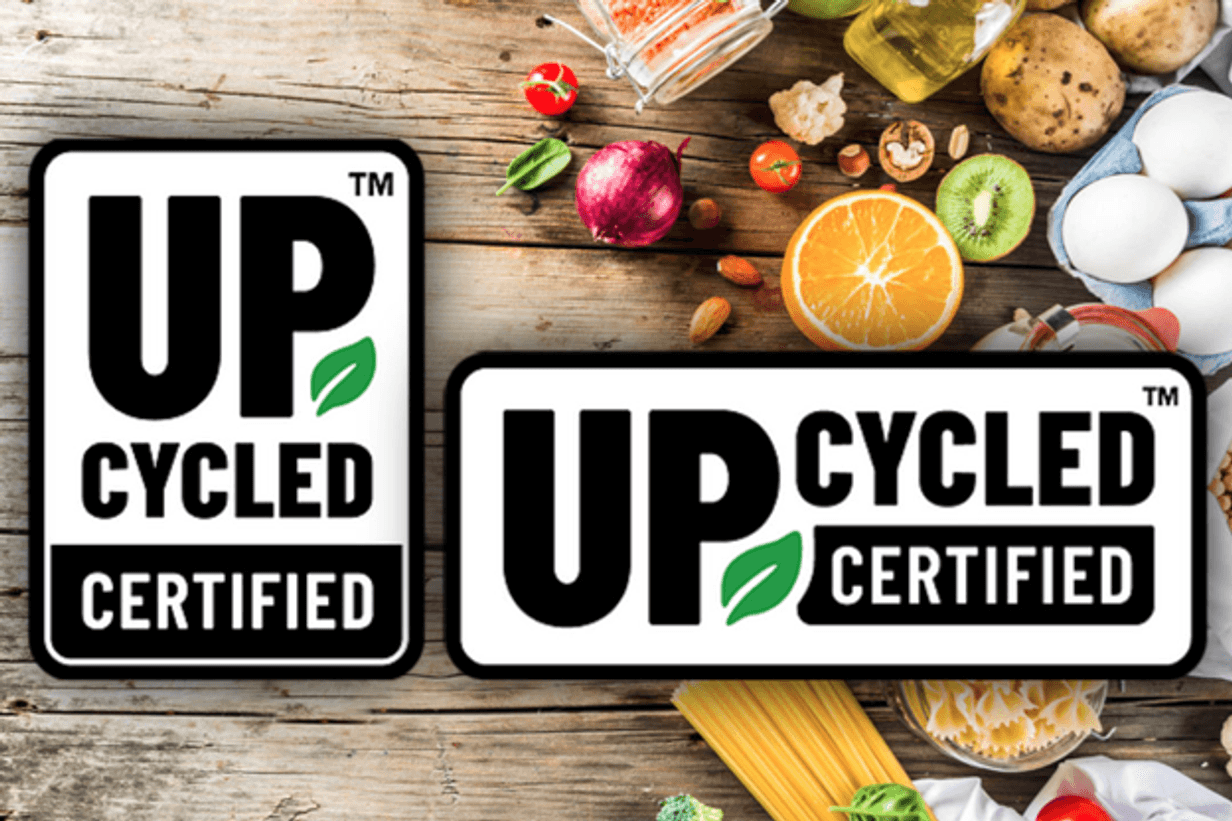
If food waste were a country, it would be the third biggest emitter of greenhouse gases behind China and the U.S.
On a global scale, one third of all food material is wasted. And this cannot go on. So, take heart from new research that shows a hike in purchase intent for more than half of all U.S consumers when they are exposed to this on-pack sustainability initiative.
There are essentially three opportunities for manufacturers to tackle waste. At the production stage – including farming, where over one quarter of food is discarded. At the retail stage, where 12% is either rejected for not making the grade or exceeding its predetermined shelf life. Finally, there’s the consumer stage, where 33% of produce is wasted from over purchasing or from overly generous portion sizes.
“As we emerge from this pandemic, we must acknowledge its profound effect on our future habits. There is no doubt in my mind that tackling food waste is going to be one of the fastest growing shopper priorities in the next five years. The time to act is now.”
Where America leads, the world shall follow, and luckily our ever-resourceful consumer packaged goods industry is on it. The good news is that research reveals a population willing to pay a premium to save the planet. A recent Finnish study has found that 79% of households would pay more for food products that were tackling sustainability and environmental issues.
So, let’s look at some of the brands crusading for more sustainable food production.
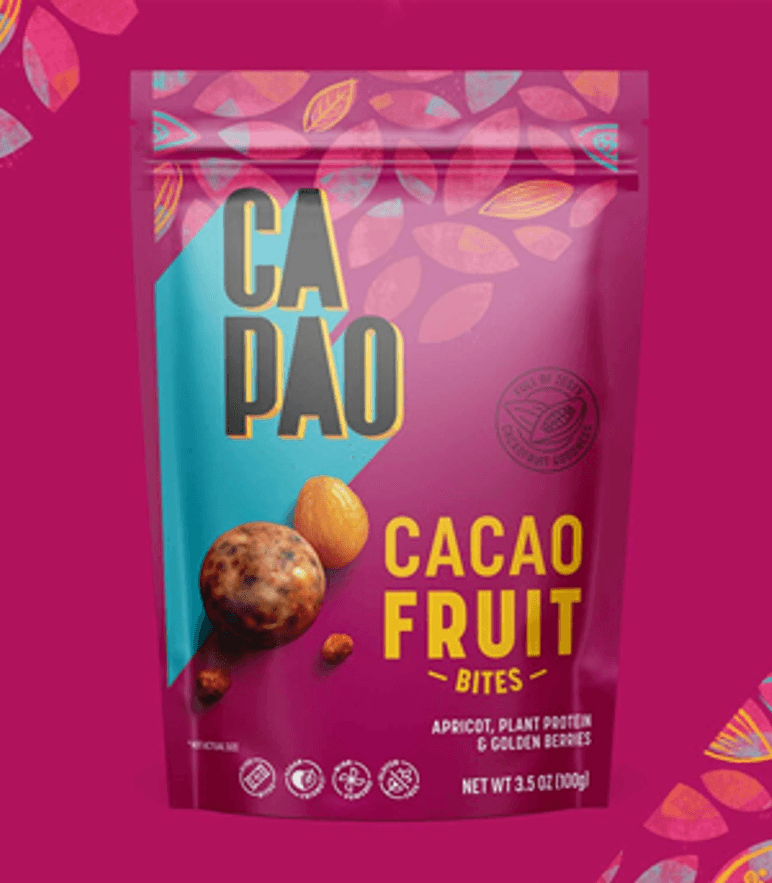
One of the first ‘upcycled’ launches to create headlines was Ca Pao – born out of Mondelez’s Snack Futures initiative. Ca Pao uses the part of the cacao fruit that is normally discarded once the prized cocoa beans have been extracted. In our own small way, we helped Mondelez fast track its concept development by deploying our Concept Accelerator tool. But all credit to the Mondelez team for this one! Incidentally, Snack Ventures have also given rise to Dirt Kitchen – a range of air-dried crisps that source from farm surplus. Nothing dirty about that.
Set up by a couple of farmers who saw firsthand the extent of food waste at the growing stage. Dash Water is a carbonated product that is flavoured with wonky fruit and veg - with absolutely no sweetening.
Despite early retail resistance, the pair got their big break with Selfridges, London, and have since gained distribution in over 5000 stores all over the world - including Wholefoods.
Their mission is to save the planet from 2,500 tons of wonky fruit and veg by 2025 and is boosted by the recent arrival of a mixers range: Rhubarb & Fiery Ginger, Lime & Garden Mint and Bitter Orange & Grapefruit. Sustainable really doesn’t mean shabby!
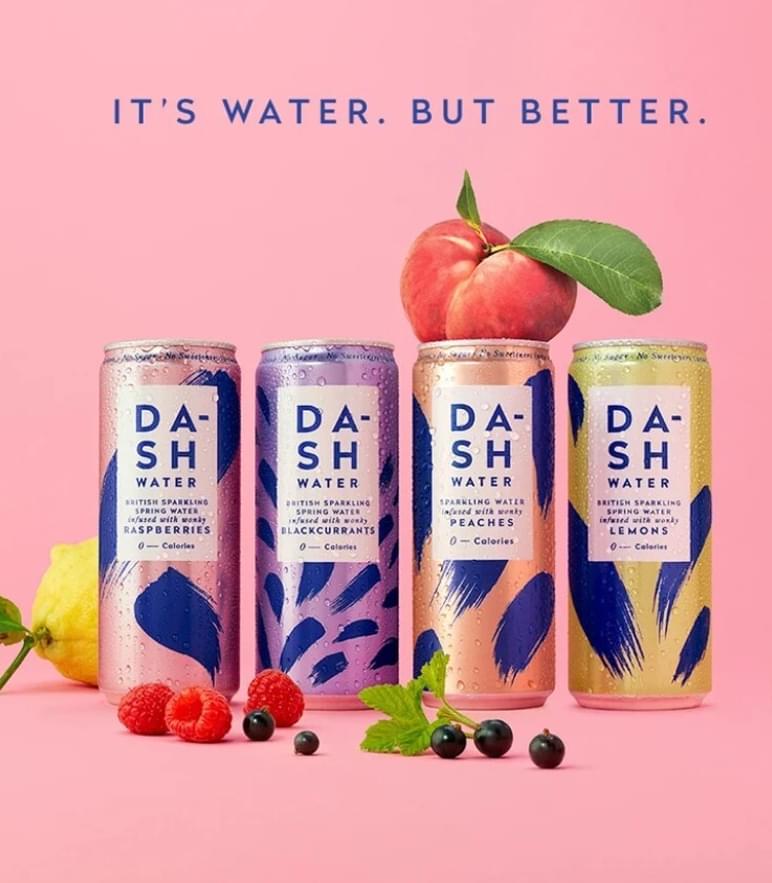
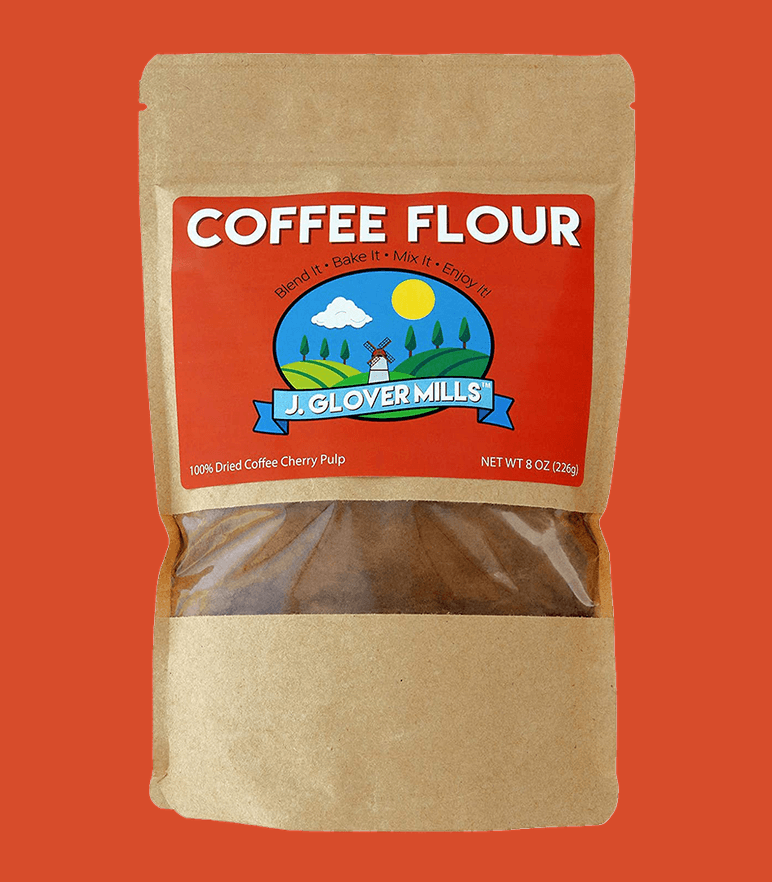
So, here’s a thing. This company rescues a byproduct of green coffee beans, and turns it into a pretty amazing functional product, delivering economic and environmental sustainability for workers and communities.
Whether brewed hot or cold, Coffee Cherry make wonderful fruit teas and coffee drinks and can be added to nutrition drinks for an extra boost. For something that is usually left to rot, Coffee Cherry has more antioxidants than pomegranate, more fibre than wholegrain, more iron than spinach and more potassium than bananas. It’s like they’ve unleashed one of nature’s secrets.
Claiming to be the pioneers of by-product beauty, UpCircle products rescue their ingredients from other industries – the food and drink industry in particular. The company believes that after natural, then organic, then vegan and cruelty-free beauty, circular / by-product beauty will be the next personal care narrative that matters to people.
“Our ultimate mission is to leave the world better than we found it by transforming ingredients that would otherwise be discarded into natural, organic beauty products – better for you, better for the world.” Seriously. What’s not to like here?
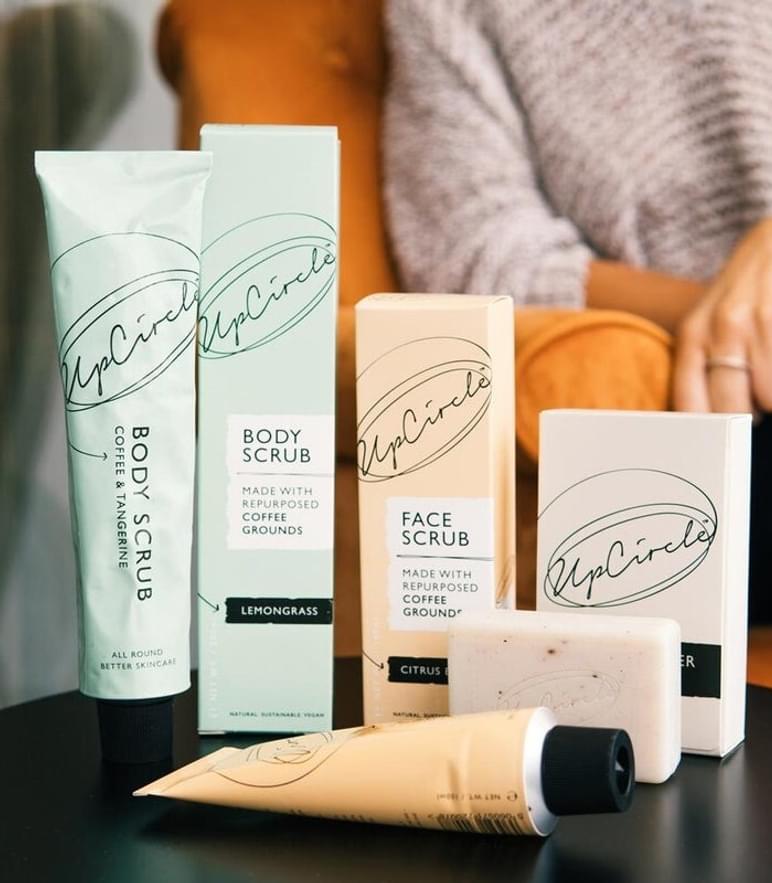
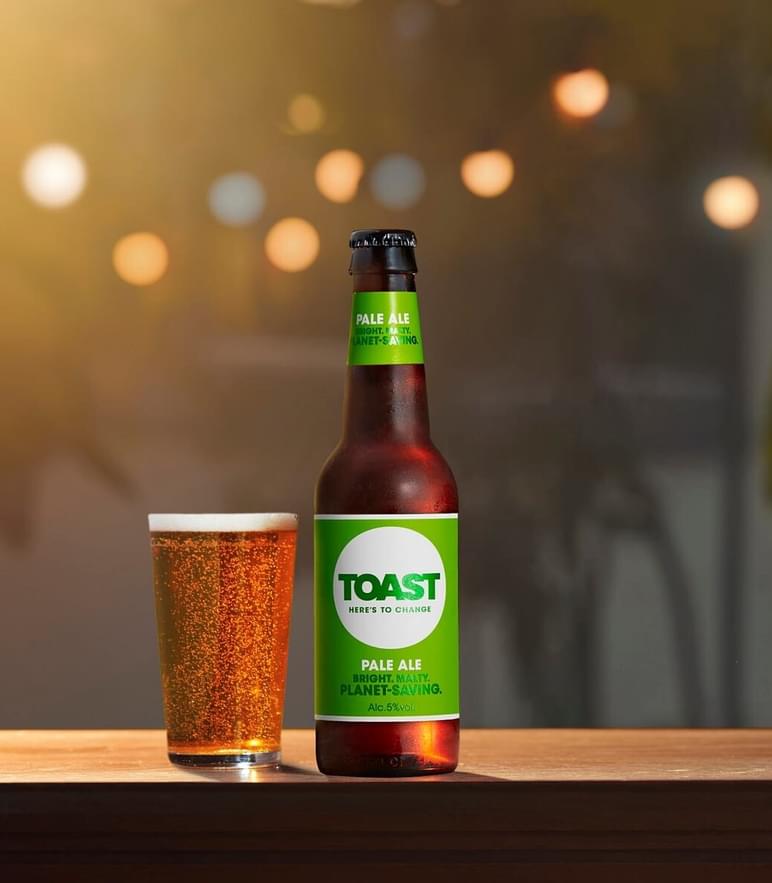
“Raise a Toast. Save the world.” These are the words that welcome you to this crusading beer brand. And Toast Ale doesn’t hold back. “Industrial food production is destroying and polluting habitats, contributing to the mass extinction of species. But one-third of food is wasted. By reducing food waste and restoring nature, we can protect the diverse web of life on which we all depend.”
The brand uses surplus bread to replace virgin barley, which means that there is less use of land, water and energy, and less carbon emissions.
Its Mango IPA (5.5%) is brewed with surplus fresh bread and surplus wonky mangoes!
Your favourite beer might be crisp, refreshing, and zesty – but is it planet-saving?
Just to illustrate the cyclical nature of the fight against food waste, ReGrained rescues nutritious grains that are a by-product every time beer is brewed. It turns them into ‘boldly seasoned’ crunchy carb-savvy snacks that are low-calorie and a good source of fiber and prebiotics.
Their mission is to ‘better align the food we eat with the planet we love.’
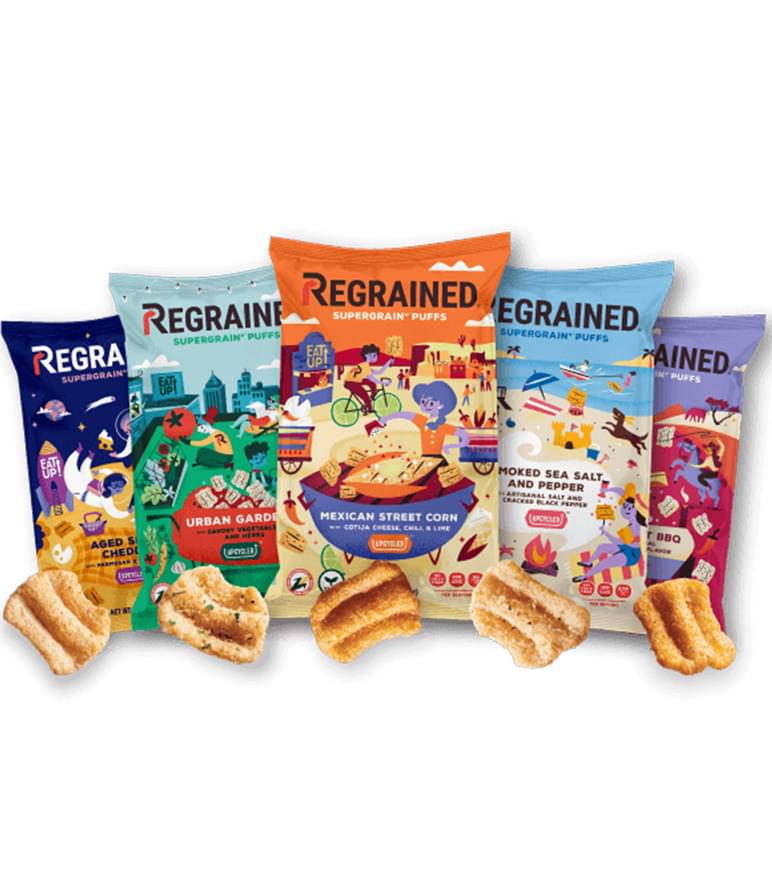
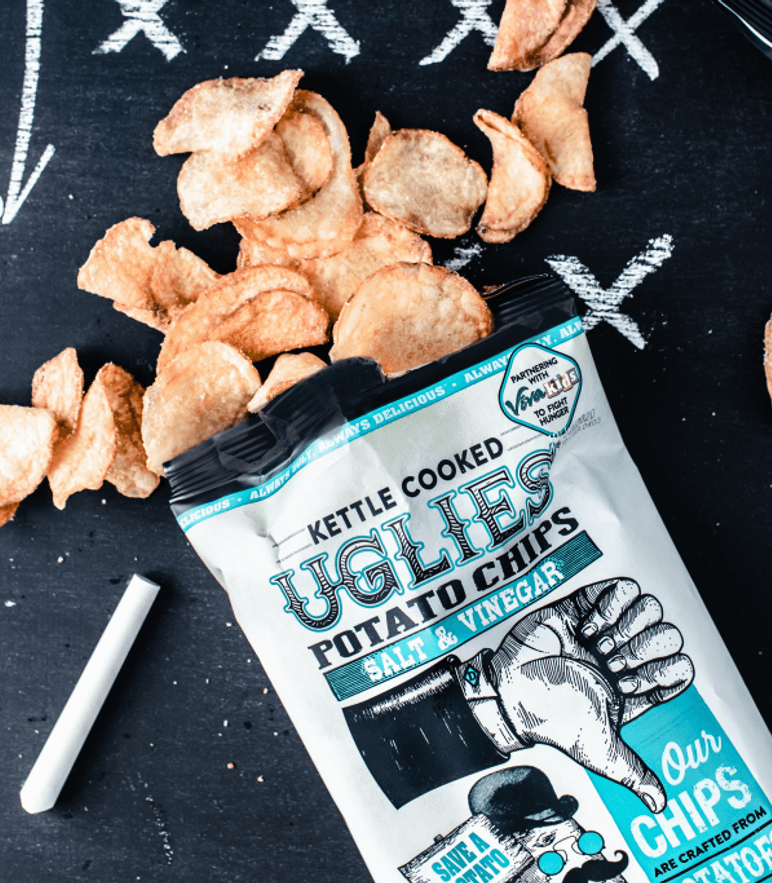
There’s something about Uglies that makes you want to adopt a potato. Uglies uses ‘failed’ produce and turns it into Kettle Cooked Potato Chips. Potatoes that were either too large or too small, the wrong colour or slightly blemished.
Uglies gives ‘orphaned’ potatoes a chance and claims to have rescued over 4,200,000 pounds of potatoes since 2017.
For Uglies, it’s not just about reducing colossal amounts of food waste. It’s about fighting hunger. The brand claims that if America could reduce its food waste by just 15%, it could feed 25 million Americans. Wouldn’t that be beautiful?
One of the pioneers of the fight against food waste, Rubies in the Rubble was created in London in 2010 by Jenny Dawson. As a former hedge-fund employee, Jenny wanted to create a business that railroaded through the “hippy notion of food waste” that existed then.
Not only is Rubies reducing food waste by taking on surplus mis-shapes from the growing phase, but its obsession with pickling is also helping at the retail and consumer stages – with longer life product that keeps.
“Our range of ketchups & relishes are made with fresh fruit & vegetables sourced directly from farms, whilst our mayo is made with aquafaba, a plant-based alternative to eggs that is usually thrown away. Condiments are a fantastic way of preserving produce by extending their shelf-life with vinegars and sugars.”
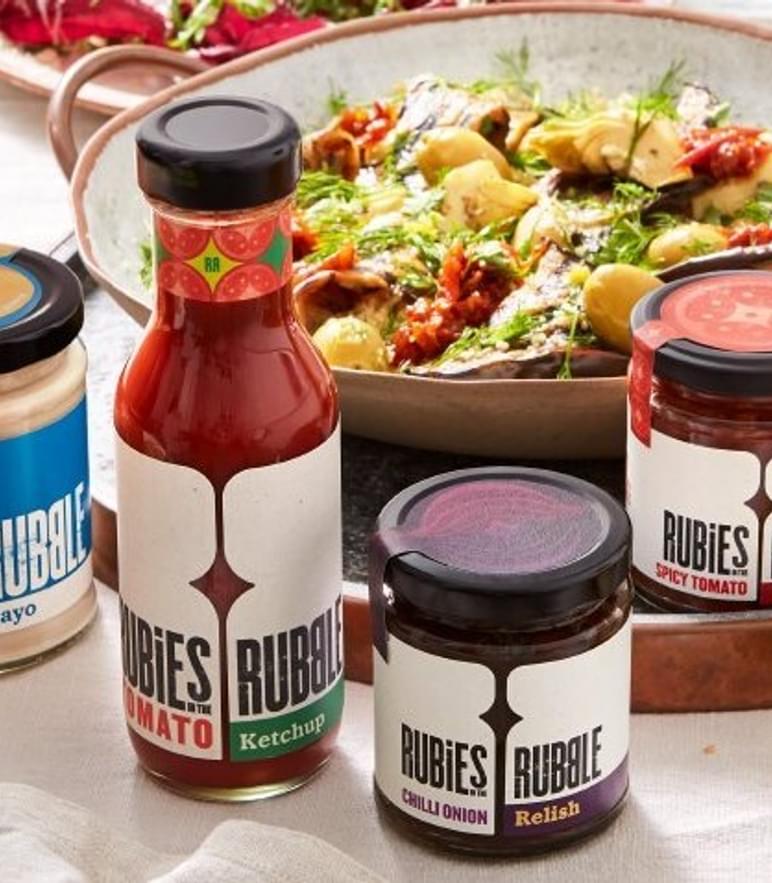
This article has been a joy to write. A genuine feel-good experience that has highlighted the very best intentions of our industry.
The launch of the UFA symbol in America signals an escalation of innovation in this space, and it must be replicated around the world. With evidence supporting a surge in purchase intent for food waste warrior products, now is the time for more mainstream players to make some moves into this area.
We have to believe that, in the fight against climate change, COVID represents a ‘pause and think’ moment that will boost consumer activism. Any reasonable person confronted by the evidence cannot help but feel compelled to act.
The fact that companies like Mondelez are starting to move is significant, because this will have been noticed by competitors, and we all know what that means.
We should regard this moment as the start of a specific sustainability trend that will accelerate massively as word reaches more mainstream public consciousness. For major players, it’s time to consider how new product ideas can be executed in ways that make a dent in a problem that we all need to own.
If you'd like to find out more about MMR and how we can help solve your challenges, check out our team's availability and book in a call at a time that suits you.
If you'd prefer to chat over email, fill out your details below and we'll get back to you as soon as we can.